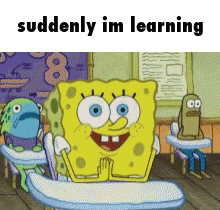🚀 Advanced Query Translation Patterns for RAG Systems
 Shriyash Parandkar
Shriyash Parandkar
🧠 Why Query Translation Matters
Imagine you're Googling:
"Best biryani recipe for Sunday night" —
but Google only shows you "best biryani restaurants in Hyderabad". 🙃
Good Retrieval = fetching exactly what you meant.
Query Translation = tweaking your search so your system actually understands you.
1. 🌀 Parallel Query Retrieval (Fan Out)

Concept:
Don’t ask once. Ask MANY variations in parallel.
Example:
Instead of one boring query like:
- "Best laptop for coding"
You fire off 5 spicy versions at once:
"Best programming laptops India 2025"
"Affordable laptops for developers"
"Top laptops for React developers"
"Which laptop is good for coding long hours?"
"Best work-from-home laptops"
🔹 Benefit: Increases chances of hitting a jackpot result.
Dev Analogy:
When you ask your parents about buying a laptop, you don't just ask once — you ask your dad, mom, uncle, cousin, neighbor, and even the family WhatsApp group. 🎯
2. 🔀 Reciprocal Rank Fusion (RRF)

Concept:
Combine rankings from multiple retrieval sources and blend them smartly.
Example:
You search "Top programming books" on:
Google
Reddit
Amazon
Instead of picking JUST one list, you merge rankings — a book that's ranked #3 on Reddit, #7 on Google, and #2 on Amazon still gets a high final score.
🔹 Benefit: Different sources = stronger final results.
Dev Analogy:
Choosing a new phone?
You check YouTube unboxing, Flipkart reviews, and your techie friend's advice, then take a smart weighted average decision. 📱
3. ⏪ Step Back Prompting (Algorithmic Style)

Concept:
Before answering, the system "st/eps back", asks a broader meta-question, and THEN answers.
Example:
Original Query: "How to deploy React app?"
Step Back Thought:
"What are the key steps involved in deploying any web app?"
Now it retrieves general deployment principles first (hosting, build optimization, domain setup), THEN applies them to React.
🔹 Benefit: Broader thinking first = better context.
Dev Analogy:
When you tell your friend: "I want to learn React", he says,
"Bro, first learn JavaScript properly."
Same vibes. 🧘♂️
4. 🛤️ Chain of Thought (CoT)

Concept:
The system writes its thinking step-by-step before reaching a final answer.
Example:
Query: "Should I use MongoDB or MySQL for my startup?"
Instead of blurting an answer, the model thinks:
What kind of app is it? (Transactional or flexible schema?)
How much data?
What scaling needs?
Team's experience?
Budget?
Only THEN gives a thoughtful answer.
🔹 Benefit: Less "random guesses", more "solid decisions."
Dev Analogy:
When a Sharma ji ka beta asks whether to go for Engineering or MBA — he makes a whole 5-year life plan before answering. 📊
5. 📜 HyDE - Hypothetical Document Embeddings

Concept:
Before searching for real documents, the model first imagines a perfect doc — then searches based on that imagination.
Example:
Query: "Explain blockchain to a 5-year-old."
Instead of searching existing docs blindly, it first creates a hypothetical doc in its head like:
"Blockchain is like a magic notebook everyone can see but no one can change."
Then it retrieves real documents similar to that imagined answer.
🔹 Benefit: Super targeted, creative retrieval.
Dev Analogy:
Before asking your crush out, you imagine the perfect conversation in your head (and rehearse it 20 times).
Reality is different, but still better prepared. 💬💔
🎯 Conclusion
Advanced Query Translation techniques make your RAG system think broader, search smarter, and reason deeper — just like any good developer navigating StackOverflow, YouTube tutorials, and life advice from random strangers on Quora. 😄
Whether you're building a smart chatbot, a knowledge assistant, or just leveling up your retrieval game, these patterns are your new secret weapons.
✨ Quick Recap
| Technique | Key Idea | Dev Twist |
| Parallel Query | Ask many ways | Family group inquiries |
| RRF | Merge multiple rankings | Flipkart + YouTube + friend |
| Step Back | Think meta-first | Learn JS before React |
| CoT | Step-by-step reasoning | Sharma ji ka beta planning |
| HyDE | Imagine first, search later | Crush conversation rehearsal |
Subscribe to my newsletter
Read articles from Shriyash Parandkar directly inside your inbox. Subscribe to the newsletter, and don't miss out.
Written by

Shriyash Parandkar
Shriyash Parandkar
Trust me, I'm a software developer. I love building real-world applications using tech, solving problems, and optimizing workflows.